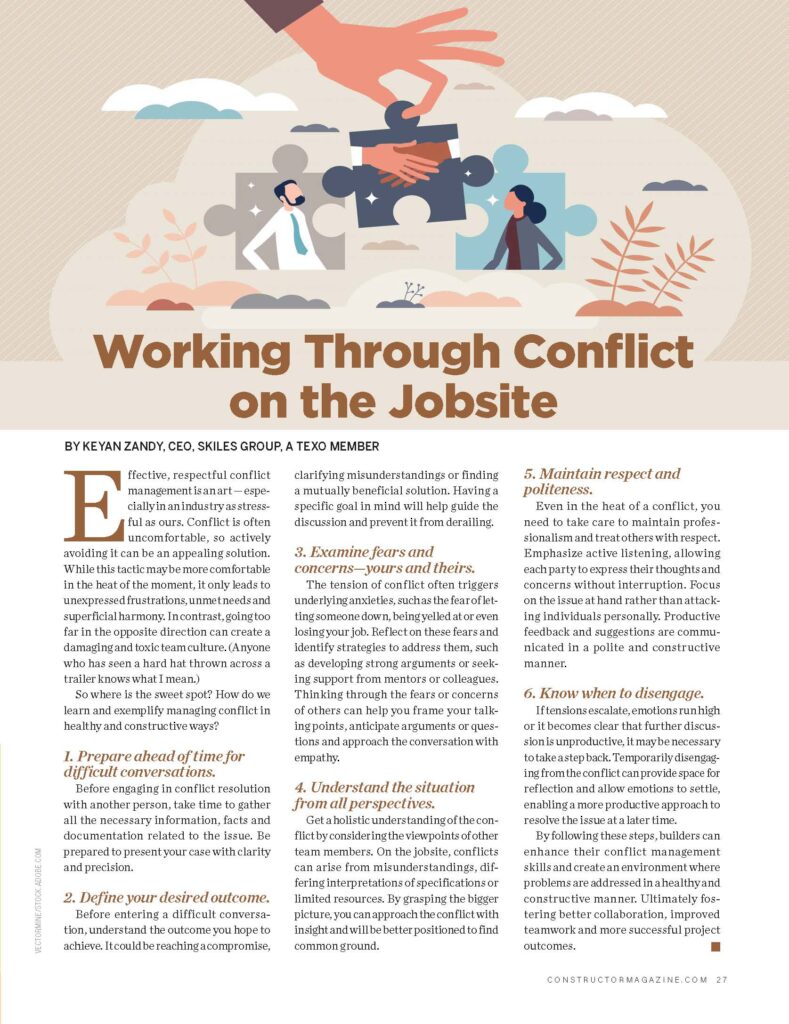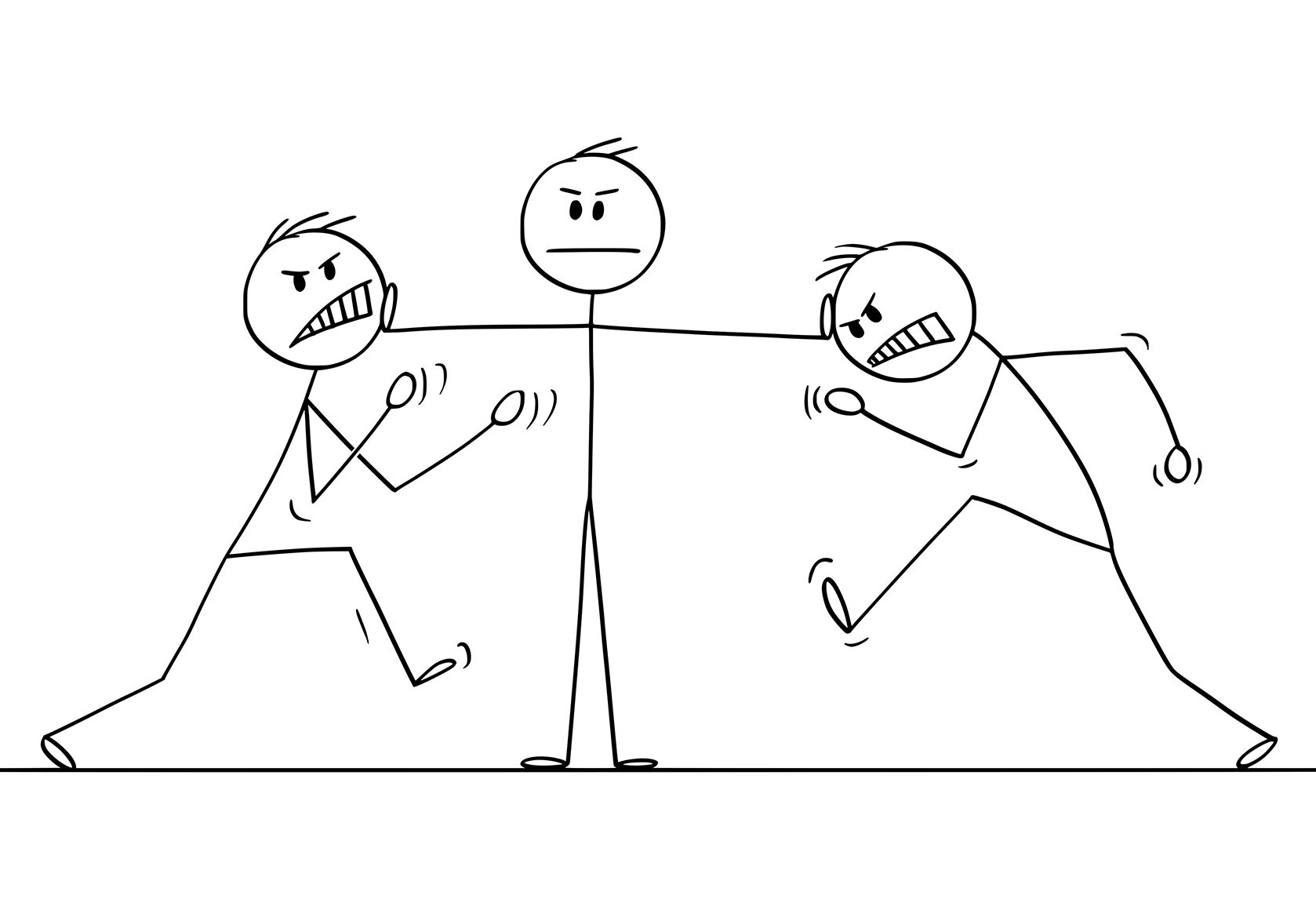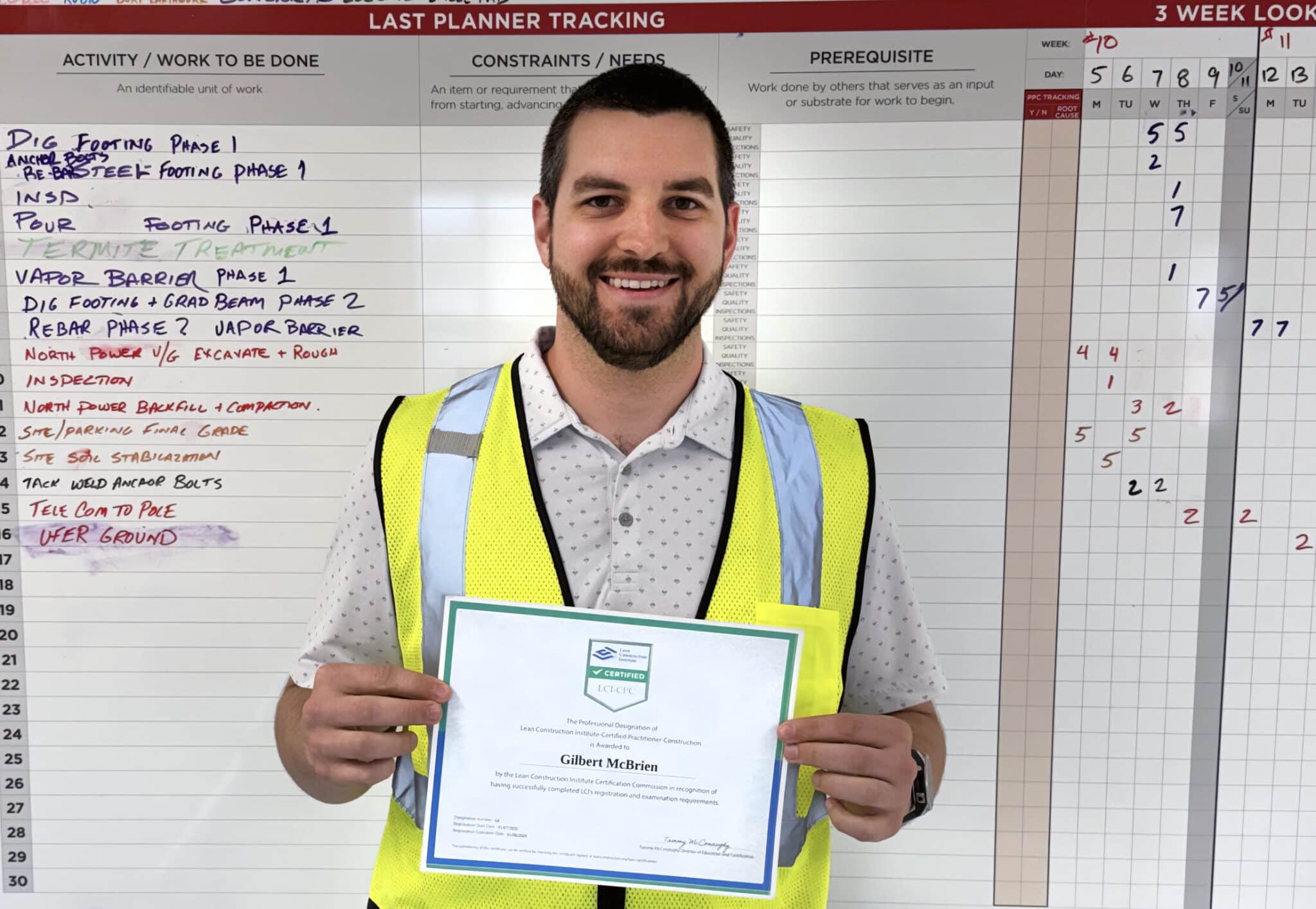Effective, respectful conflict management is an art—especially in an industry as stressful as ours. Conflict is often uncomfortable, so actively avoiding it can be an appealing solution. While this tactic may be more comfortable in the heat of the moment, it only leads to unexpressed frustrations, unmet needs, and superficial harmony. In contrast, going too far in the opposite direction can create a damaging and toxic team culture. (Anyone who has seen a hard hat thrown across a trailer knows what I mean.)
So where is the sweet spot? How do we learn and exemplify managing conflict in healthy and constructive ways?
- Prepare ahead of time for difficult conversations.
Before engaging in conflict resolution with another person, take time to gather all the necessary information, facts, and documentation related to the issue. Be prepared to present your case with clarity and precision.
- Define your desired outcome.
Before entering a difficult conversation, understand the outcome you hope to achieve. It could be reaching a compromise, clarifying misunderstandings, or finding a mutually beneficial solution. Having a specific goal in mind will help guide the discussion and prevent it from derailing.
- Examine fears and concerns—yours and theirs.
The tension of conflict often triggers underlying anxieties, such as the fear of letting someone down, being yelled at, or even losing your job. Reflect on these fears and identify strategies to address them, such as developing strong arguments or seeking support from mentors or colleagues. Thinking through the fears or concerns of others can help you frame your talking points, anticipate arguments or questions, and approach the conversation with empathy.
- Understand the situation from all perspectives.
Get a holistic understanding of the conflict by considering the viewpoints of other team members. On the jobsite, conflicts can arise from misunderstandings, differing interpretations of specifications, or limited resources. By grasping the bigger picture, you can approach the conflict with insight and will be better positioned to find common ground.
- Maintain respect and politeness.
Even in the heat of a conflict, you need to take care to maintain professionalism and treat others with respect. Emphasize active listening, allowing each party to express their thoughts and concerns without interruption. Focus on the issue at hand rather than attacking individuals personally. Productive feedback and suggestions are communicated in a polite and constructive manner.
- Know when to disengage.
If tensions escalate, emotions run high, or it becomes clear that further discussion is unproductive, it may be necessary to take a step back. Temporarily disengaging from the conflict can provide space for reflection and allow emotions to settle, enabling a more productive approach to resolve the issue at a later time.
By following these steps, builders can enhance their conflict management skills and create an environment where problems are addressed in a healthy and constructive manner. Ultimately fostering better collaboration, improved teamwork, and more successful project outcomes.
This article was written for Constructor Magazine’s Nov/Dec 2023 issue; you can read it here: https://mydigitalpublication.com/publication/?m=69328&i=806224&p=26&ver=html5





